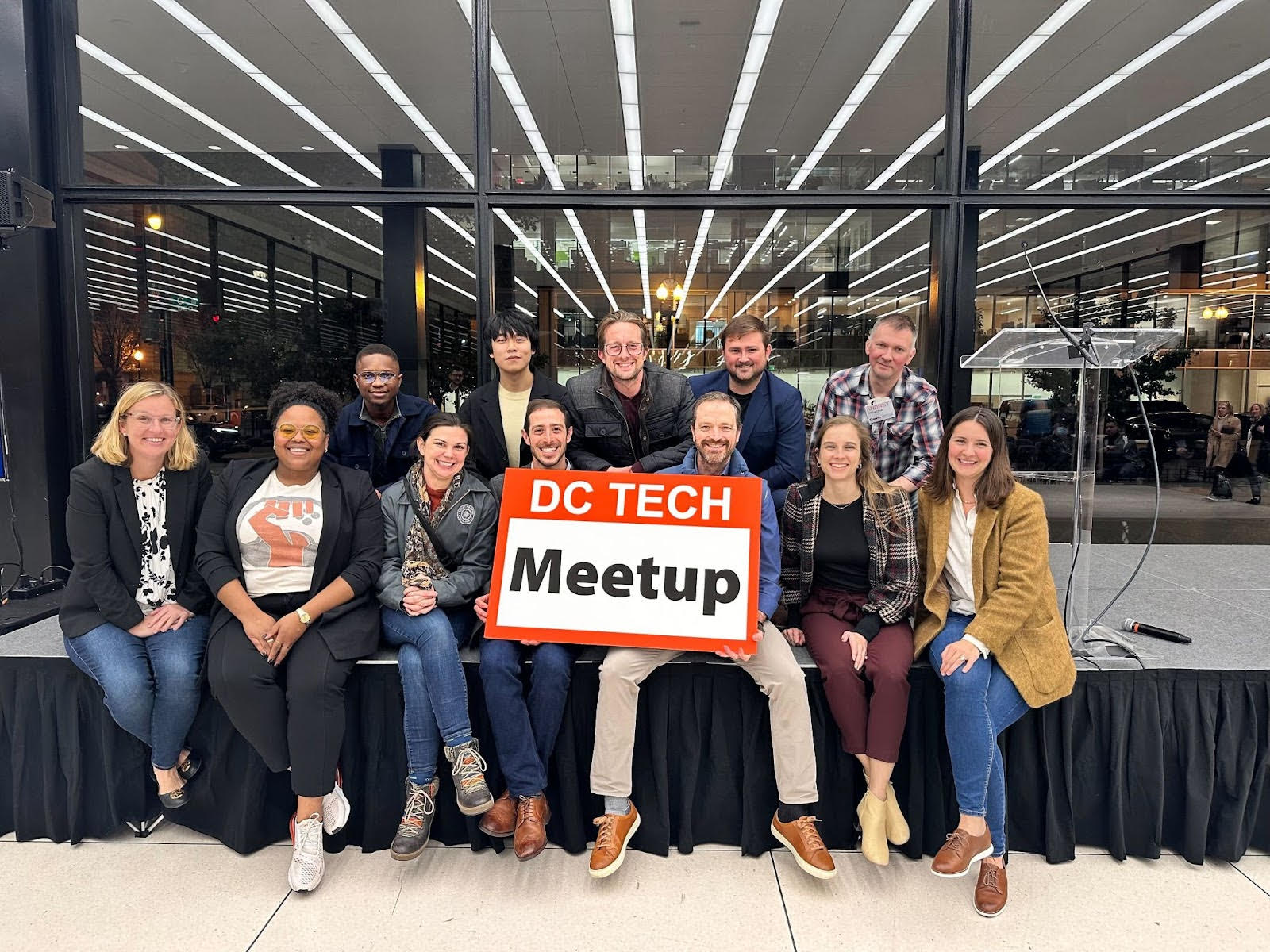The growth of virtual reality (VR) and the emerging technologies under the extended reality (XR) umbrella, such as augmented reality (AR), have the potential to reshape the way small businesses address challenges. For example, XR technology provides an avenue for immersive advertising, allowing small businesses to showcase their products or services in a unique and engaging way.
Innovators were able to showcase the XR solutions they created during a week-long hackathon-style competition to help D.C.-based small business owners face unique challenges at the 2023 DC XR Innovation Challenge on November 1. Computer science alumnus Junhao Chen, M.S.’23, took home 3rd place with his solution that addresses several critical staff training challenges in small businesses, specifically in the food service industry!
The purpose of the challenge was to allow D.C.-based small business owners to partner with technology developers to discover the next big idea in XR technology. Returning to the advertising example, using XR can make a small business’s advertising more impactful and memorable. Chen says through AR, potential customers can visualize projects in their own space before purchasing, and through VR, they can experience services in a simulated environment.
Another promising application of XR technology in small businesses is training staff. Small businesses often struggle with training and retaining staff due to limited financial resources. VR training programs eliminate the need for physical materials and can reduce the need for expert staff trainers. AR can also aid in reducing operational costs by streamlining processes and enhancing employee efficiency with interactive guidance. Chen applied these technologies to help solve these issues in the food service industry.
“When opening a bar or restaurant, the business burns money for the first 18 months. If we can shorten that amount of time, the business will be more appealing to investors and have a better chance of surviving,” Chen said.
In Chen’s solution, he uses XR to create virtual environments that replicate the workplace, allowing staff to practice and hone their skills without physical space constraints or wasting materials. This way, the small business owner can start staff training before physically setting up the restaurant, saving lots of time. Chen says this is crucial for businesses like “The Golden Age” restaurant, which he focused on in this project, where training can be both resource-intensive and costly. By using AR in his solution, he also added another layer of improved efficiency to the training process by providing real-time, step-by-step task guidance, ensuring consistency and quality in customer service.
“This level of training efficiency and effectiveness is significant because it leads to better-trained employees, reduces turnover rates, and enhances overall customer satisfaction – all of which are vital for the success and growth of small businesses,” said Chen.
Chen was first introduced to VR and AR through the course Augmented and Virtual Reality taught by Dr. Hurriyet Ok, instructor in the computer science department. He took the class because he was interested in learning about XR technologies due to the immersive experiences they offer that can significantly enhance how we interact with information and our environment. Dr. Ok’s class gave him a strong foundation in XR technologies and, more importantly, the opportunity to develop his own applications.
“This inspiration was the driving force behind my pursuit of applying XR technology to solve real-world problems, such as those faced by small business owners, in this competition,” Chen stated.
Overall, XR technology offers innovative solutions to many small businesses’ main pain points, including lack of advertising options, financial constraints, and staffing limitations. Through the DC XR Innovation Challenge, Chen utilized the knowledge he gained during the Augmented and Virtual Reality course while positively impacting small businesses in the D.C. area.


